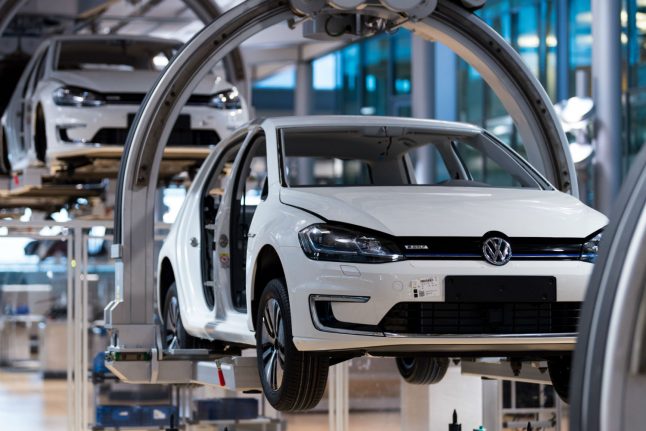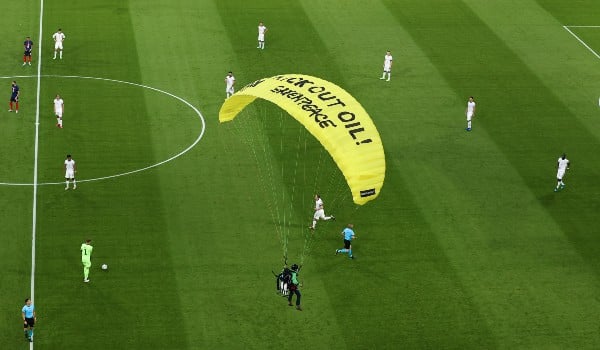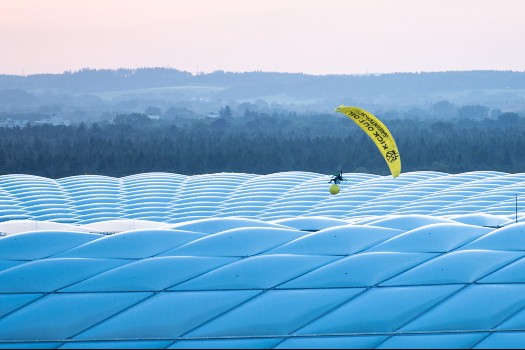The sum is an increase of €16 billion over previously-announced investments.
In a plan approved by its supervisory board, VW also said it would introduce up to 75 all-electric models and around 60 hybrid vehicles over the next decade, compared with a total of 70 across both types that were already planned.
VW is “focusing our investments on the future of mobility,” chairman Dieter Pötsch said in a statement.
READ ALSO: VW to unveil new Golf to help unveil switch to 'electric era'
Chief executive Herbert Diess added: “In light of the worsening economic situation, we are also working on increasing our productivity, our efficiency and our cost base so as to secure meeting our targets.”
The company said it was planning to sell 26 million all-electric vehicles by 2029 as well as around six million hybrid vehicles by that time, hoping they will help hit new European carbon dioxide (CO2) emissions targets.
On top of that should come around six million hybrids.
READ ALSO: Stripped-back auto show highlights German car industry woes
MEB baby
From next year, carmakers must achieve average carbon dioxide (CO2) emissions of 95 grammes per kilometre across newly-sold vehicles in the European Union, on pain of hefty fines.
“We will meet the strictest European limits from 2020,” Diess said.
VW has made a bigger bet than competitors on all-electric cars, designing a battery-powered platform known as “MEB” that will form the basis for a whole
range of vehicles, beginning with the mass-market “ID.3”.
Of the 29 million electric vehicle sales VW is targeting over the coming decade, 20 million will be from MEB-based vehicles.
VW's strategy apes Californian electric pioneer Tesla, which announced this
week it plans its first European factory for a site just outside Berlin.
READ ALSO: What does Tesla's Berlin touchdown mean for German automakers?
At other traditional manufacturers, platforms — which include the chassis
and various invisible components that are shared across different models —
are set to remain flexible for different fuel options.
Meanwhile VW will have to spend big to transform existing factories to produce electric cars — five in Germany, one in the US, one in the Czech Republic and two in China.
The group's electric push was given fresh momentum as it attempted to turn the page on its “dieselgate” scandal, which cost it dear in both cash and reputational harm.
Legal cases grind on over VW's admission four years ago that it illegally fitted 11 million diesel vehicles worldwide with software to make them appear less polluting.
Challenging market
On top of the electric push, CEO Diess said that “in light of the worsening economic situation, we are also working on increasing our productivity, our efficiency and our cost base so as to secure meeting our targets.”
VW last month said it was confident of hitting financial targets despite a lower unit sales outlook, warning that “vehicle markets will contract faster than previously anticipated in many regions”.
A global growth slowdown triggered by trade wars and Brexit uncertainty has
hit the car industry particularly hard, as have the mammoth costs associated
with switching to electric car production.
In recent months, the company has announced between 5,000 and 7,000 job
cuts at the VW brand alone.
Meanwhile bosses also turned their attention Friday to struggling high-end
subsidiary Audi, which reported falling sales, revenues and operating profits
over the first nine months of 2019.
From April, former BMW purchasing chief and engineer Markus Duesmann will
head the manufacturer with the four-ring logo, also joining the group-wide
executive board.
Audi suffered more than other German manufacturers from the introduction
last year of the new WLTP emissions testing standards in the European Union,
which created bottlenecks in production.
It has also ramped up spending on new technologies, including
battery-electric and hybrid vehicles, connectivity and autonomous driving.




 Please whitelist us to continue reading.
Please whitelist us to continue reading.
Member comments